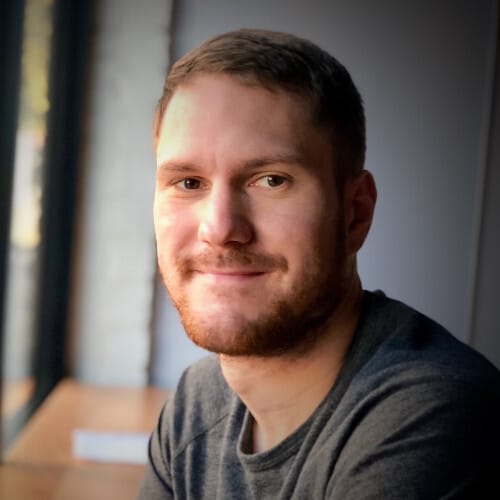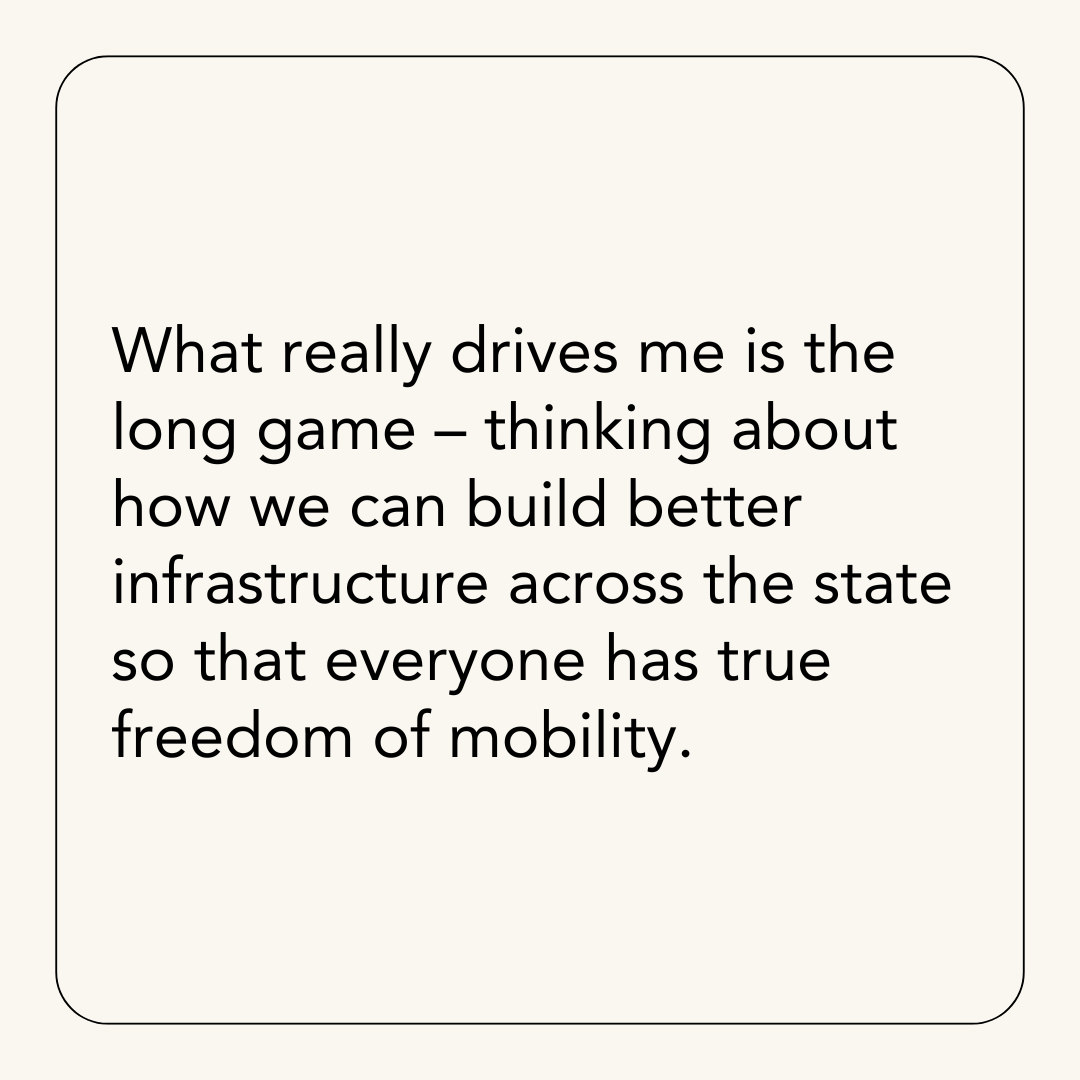
Cory switched majors a few times in college before landing on geography. After graduating, he worked in an after-school program and tutored students in math, which eventually inspired him to pursue a graduate degree in social work.
A self-described history nerd, Cory was researching the Boonslick Trail when he stumbled upon a regional planning commission—and with it, a job opening for a mobility manager. He took the role and now works in two key areas: helping individuals find transportation options and shaping public transit policy at both the regional and state levels in Missouri.
He’s passionate about connecting people to opportunities, but he also makes time for his creative interests, like music, hip-hop, and fashion. Looking ahead, Cory hopes to grow into leadership roles in transit and contribute to the development of a high-speed rail network across North America.
Questions
What do you do?
I’m a mobility manager working within a regional planning commission, and in this role, I wear two hats. One part of my job is very direct service–oriented: we help people who don’t have reliable transportation get to where they need to go—whether that’s the doctor’s office, the grocery store, or work. Our goal is to help them find safe, affordable options that fit their needs.

The other part of my work is at the regional and state policy level, focused on improving public transit infrastructure. It’s both a short game and a long game. In the short term, we’re working with the resources we have to connect people to existing transit solutions. But what really drives me is the long game—thinking about how we can build better infrastructure across the state so that everyone has true freedom of mobility.
Mobility, by definition, means "the ability to move freely," and that’s a passion that I’ve carried with me throughout most things I’ve done professionally. For me, it all comes down to this question: how do we connect people to opportunity? That’s what transit systems are all about. Everyone deserves the freedom to move—whatever that looks like for them.
My first job after undergrad was with an after-school program, tutoring middle and high school students in math. I completely fell in love with the program and the kids. This was right after Mike Brown and Ferguson, and I thought—if we want to make lasting change, we need to invest in our communities of color. That’s when I had this “aha” moment: I wanted to become a social worker.
There was this quote from a book about the Harlem Children’s Zone that stuck with me. It said something like, “How do you expect a kid to do well on a test when they don’t have food at home or know where they’re going to sleep?” I thought, we need to look at the systems our kids are growing up in if we want to give them a real, fair shot at success.
That led me to pursue a master’s in social work. During that time, I co-founded a nonprofit that hosted open mic nights for teenagers—it ended up being really successful. But deep down, I knew the classroom wasn’t where I wanted to stay long term.
Eventually, I came across the regional planning commission. I checked out their website, and it just so happened they were hiring for what would become my current role. It felt like a dream job—something I had the skills for and was genuinely passionate about. I applied, and sure enough, I got it.
What skills are necessary for your role?
You need to be able to listen and empathize. I’ve been fortunate to almost always have access to a car, a roof over my head, and food on the table. That’s a luxury way more than it should be a luxury. So being able to empathize with others is key.

Geography skills are a must. You have to understand the physical layout—where you are, where the person is, and the barriers they might be facing in trying to get where they need to go.
And just as important is being able to connect with people. You need to be able to talk with them in order to know how to meet their needs. So being a people person definitely helps.
What could you see yourself doing in the future?
I originally had my sights set on building a regional rail network around my city. But over the course of the pandemic, my vision broadened. If I had the opportunity to contribute to a high-speed rail network across North America, that’s something I’d love to be a part of.
Looking ahead, I see myself stepping into bigger transit leadership roles.
What is your career advice for others?
Embrace your journey. I’ve worked in education, the corporate food world, and now transportation—and on the surface, those might seem disparate. But for me, each step built on the last and helped shape the professional I am today.
If you’re in a social impact or service-oriented field, it’s easy to fall into this mindset of self-sacrifice—like, I’m doing good, so it’s okay if I suffer a little. But the truth is, you still deserve to be valued and treated with respect. Don’t feel like you have to make sacrifices in order to make an impact on someone’s life.

If I could go back and talk to myself as a 21-year-old college grad, I’d say: be grateful for the experiences you have. Don’t get too attached to any one job or place—it’s all fleeting. Investing in yourself is really what matters at the end of the day, and you’ll find that a lot of skills and industries are more transferrable than you might think.